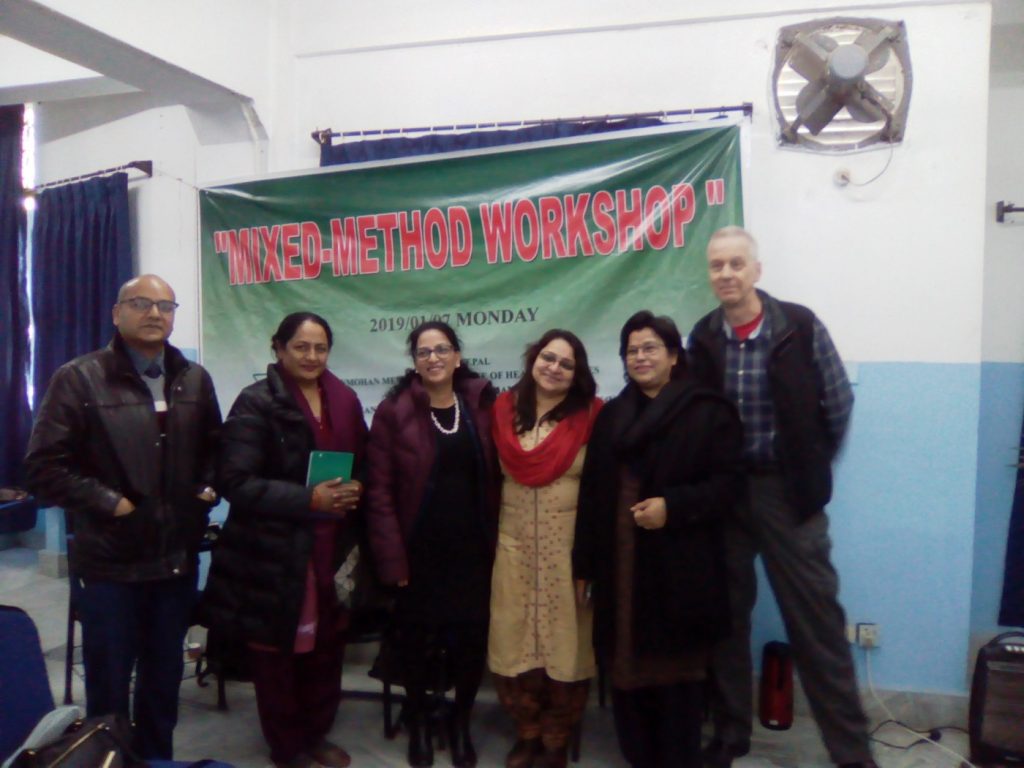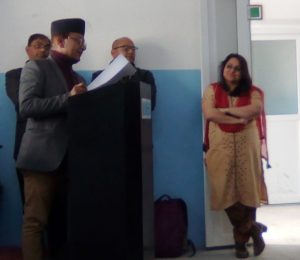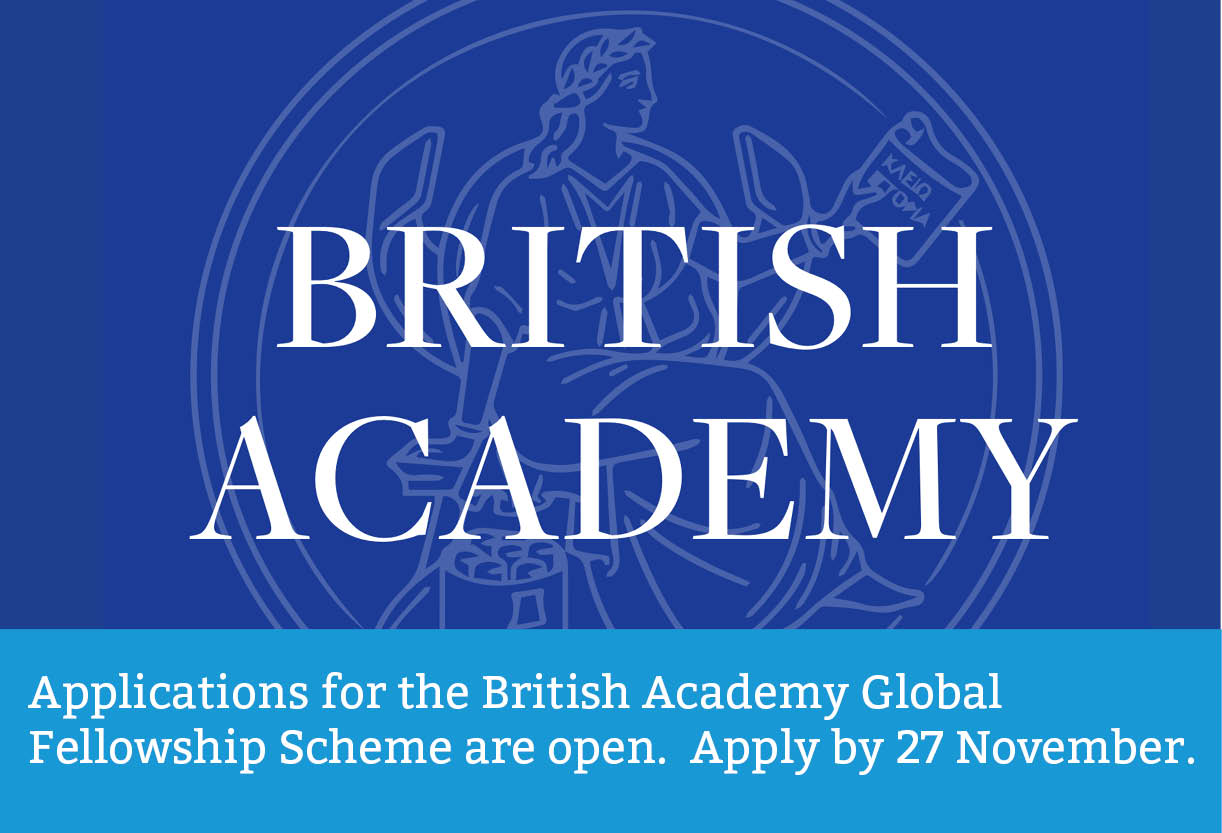 Last year BU signed a Memorandum of Agreement (MoA) with Manmohan Memorial Institute of Health Sciences (MMIHS) in Kathmandu, Nepal. This week Dr. Bibha Simkhada, Lecturer in Nursing, Dr. Shanti Shanker, Lecturer (Academic) in Psychology, and Prof. Edwin van Teijlingen in the Centre for Midwifery, Maternal & Perinatal Health (CMMPH) delivered one-day workshop on qualitative and mixed-methods research approaches. The workshop was very well attended by MSc students, not just from MMIHS, but also those from several other colleges and universities.
Last year BU signed a Memorandum of Agreement (MoA) with Manmohan Memorial Institute of Health Sciences (MMIHS) in Kathmandu, Nepal. This week Dr. Bibha Simkhada, Lecturer in Nursing, Dr. Shanti Shanker, Lecturer (Academic) in Psychology, and Prof. Edwin van Teijlingen in the Centre for Midwifery, Maternal & Perinatal Health (CMMPH) delivered one-day workshop on qualitative and mixed-methods research approaches. The workshop was very well attended by MSc students, not just from MMIHS, but also those from several other colleges and universities.
 MMIHS is part of BU’s latest bids for ERASMUS Higher Education Student & Staff Mobility between Programme and Partner Countries (Key Action 107) – International Credit Mobility. Bournemouth University’s strategic plan known as BU2015 has as one of its pillars our desire to “enrich society by having a significant impact on challenges world-wide“. Through Fusion BU aims to (a) have a positive impact world-wide on the challenges facing society; (b) ensure staff, students and graduates enrich society as active citizens in their communities; and (c) strengthen our shared impact through worldwide partnerships. Expanding and developing the existing BU-MMIHS partnership is a excellent stepping stone for the ERASMUS application.
MMIHS is part of BU’s latest bids for ERASMUS Higher Education Student & Staff Mobility between Programme and Partner Countries (Key Action 107) – International Credit Mobility. Bournemouth University’s strategic plan known as BU2015 has as one of its pillars our desire to “enrich society by having a significant impact on challenges world-wide“. Through Fusion BU aims to (a) have a positive impact world-wide on the challenges facing society; (b) ensure staff, students and graduates enrich society as active citizens in their communities; and (c) strengthen our shared impact through worldwide partnerships. Expanding and developing the existing BU-MMIHS partnership is a excellent stepping stone for the ERASMUS application.
Prof. Edwin van Teijlingen


 The
The 











 Beyond Academia: Exploring Career Options for Early Career Researchers – Online Workshop
Beyond Academia: Exploring Career Options for Early Career Researchers – Online Workshop UKCGE Recognised Research Supervision Programme: Deadline Approaching
UKCGE Recognised Research Supervision Programme: Deadline Approaching SPROUT: From Sustainable Research to Sustainable Research Lives
SPROUT: From Sustainable Research to Sustainable Research Lives BRIAN upgrade and new look
BRIAN upgrade and new look Seeing the fruits of your labour in Bangladesh
Seeing the fruits of your labour in Bangladesh ECR Funding Open Call: Research Culture & Community Grant – Apply now
ECR Funding Open Call: Research Culture & Community Grant – Apply now ECR Funding Open Call: Research Culture & Community Grant – Application Deadline Friday 12 December
ECR Funding Open Call: Research Culture & Community Grant – Application Deadline Friday 12 December MSCA Postdoctoral Fellowships 2025 Call
MSCA Postdoctoral Fellowships 2025 Call ERC Advanced Grant 2025 Webinar
ERC Advanced Grant 2025 Webinar Update on UKRO services
Update on UKRO services European research project exploring use of ‘virtual twins’ to better manage metabolic associated fatty liver disease
European research project exploring use of ‘virtual twins’ to better manage metabolic associated fatty liver disease